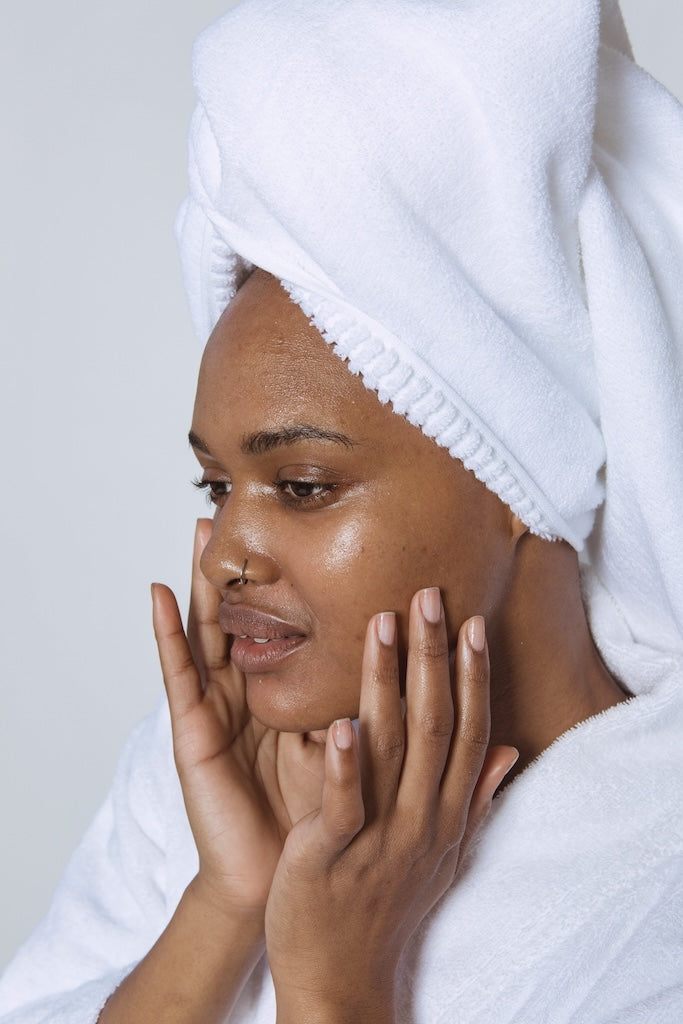
Elevate Your Skincare Ritual with Double Cleansing
Double cleansing has become a skincare buzzword, and for a good reason. It is a two-step cleansing routine that effectively removes makeup, impurities, and excess oils for a clean and radiant complexion. Let's dive into the basics of double cleansing and explore some cleansing oils to avoid if you have acne-prone skin.
What is Double Cleansing
Double cleansing involves two sequential steps. First, use an oil-based cleanser to break down makeup and impurities. Next, apply a water-based cleanser to remove any remaining residue. This method ensures a thorough cleanse, leaving your skin refreshed and prepped for any next steps in your skincare routine.
For the initial oil-based cleanse, certain oils work wonders. Non-comedogenic oils, such as jojoba oil, grape seed oil, and sweet almond oil, are excellent choices. They dissolve makeup and sebum without clogging pores, making them suitable for all skin types, including acne and blemish prone skin.
For the second step of the double cleansing process, use a water-based cleanser of your choice. This means when you look at the ingredient label on the back of your cleanser, water should be the first ingredient listed. If you have dry or sensitive skin, look for cream formulas with humectants that help attract moisture to skin. If you have oily or acne prone skin, look for exfoliating ingredients like salicylic acid or glycolic acid.
Oils to Avoid for Acne-Prone Skin
If you're battling acne, it's crucial to steer clear of pore-clogging oils. Opt for oils with a low comedogenic rating to prevent exacerbating breakouts. Here are some oils to avoid:
- Coconut Oil: While praised for its moisturizing properties, coconut oil has a high comedogenic rating and can clog pores, potentially leading to acne flare-ups.
- Wheat Germ Oil: With a relatively high comedogenic rating, wheat germ oil may not be the best choice for those prone to acne, as it can contribute to pore congestion.
- Olive Oil: While it has numerous health benefits, olive oil can be comedogenic for some individuals. Those with acne-prone skin should exercise caution when using it in their skincare routine.
- Flaxseed Oil: Despite being rich in omega-3 fatty acids, flaxseed oil has a higher comedogenic rating, making it less suitable for those with acne-prone skin.
Tips for Effective Double Cleansing
- Choose the Right Oil-Based Cleanser: Look for one with non-comedogenic oils that are suitable for your skin type.
- Massage Gently: Apply the oil-based cleanser with gentle, circular motions to avoid irritation.
- Use Lukewarm Water: Hot water can strip the skin of natural oils, while cold water may not effectively remove oil-based cleansers. Stick to lukewarm water for the best results.
- Repeat the process with a water-based cleanser: Select a water-based cleanser that is suitable for your skin type.
Mastering double cleansing involves understanding your skin's needs and choosing the right products. By avoiding pore-clogging oils in the first step, especially if you have acne-prone skin, you can enhance the effectiveness of your skincare routine and achieve a clear, radiant complexion.


LEAVE A COMMENT
This site is protected by hCaptcha and the hCaptcha Privacy Policy and Terms of Service apply.